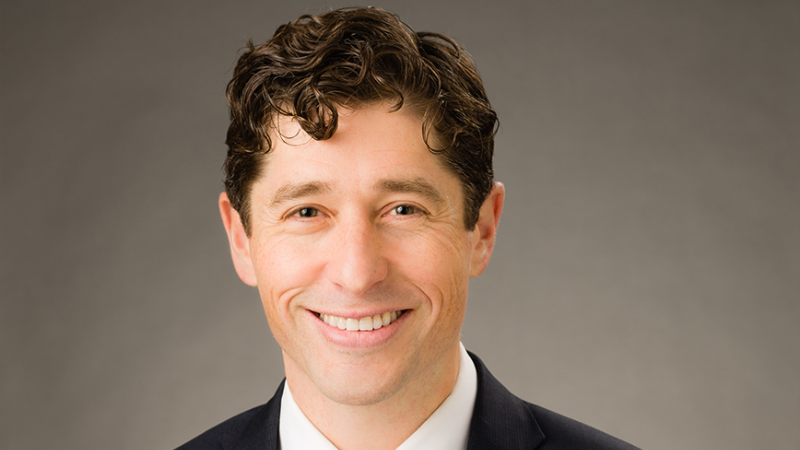Mayor Jacob Frey | City of Minneapolis Official website
Mayor Jacob Frey | City of Minneapolis Official website
Last week, Mayor Jacob Frey’s administration revealed an updated report on affordable housing performance in Minneapolis. The Way Home progress report showcases the historic work the City of Minneapolis has been doing under the Minneapolis 2040 Comprehensive Plan – getting residents into safe, dignified, and permanent housing.
The Way Home report, documented and presented by the City’s Community Planning and Economic Development Department (CPED), outlines core values and strategies that are part of Minneapolis 2040. This work is collaborative and the City relies on partnerships with the State, County, and local non-profit and community organizations.
“We are doing more than ever before to increase access to affordable housing in Minneapolis,” said Mayor Frey. “The Way Home progress report shows how our CPED staff are working tirelessly under the 2040 plan to make sure more Minneapolis residents have an affordable, safe, and stable place to call home. This is just the beginning of our record-setting housing work – and I know our city will continue to set a national standard for affordable housing work.”
“I am incredibly grateful to our City staff and partners who continue to do incredibly important work to house our most vulnerable populations,” said Council Member Lisa Goodman, chair of the Business, Inspections, Housing, and Zoning Committee. “This report shows we’re doing our part to invest in one of the most important aspects of stability and safety – a home.”
“Minneapolis 2040 was informed by more than three years of engagement with the people of Minneapolis, including over 150 meetings and conversations with thousands of residents, business owners and community members,” said CPED director Andrea Brennan. “The Way Home report summarizes housing strategies designed to implement the goals, policies, and actions of Minneapolis 2040, and the outcomes of these strategies.”
The Way Home report (2020-2022) includes seven strategies aimed at providing safe, dignified, and affordable housing for residents. Highlights of these strategies can be found below:
Strategy 1: Increase housing supply, diversity, and affordability in all neighborhoods
- Minneapolis 2040 went into effect on January 1, 2020. The City is creating new mechanisms through land use policy and zoning to increase housing density, require more affordable units, and allow for more housing types throughout the city.
- In 2022, the City modified CPED’s home improvement lending programs to offer a broader range of assistance options that leverage sustainability and health and safety grants offered by the Health Department.
- The MPHA Family Expansion project is current under construction and is an example of new project types enabled by the 2040 Comprehensive Plan. This project includes 84 deeply affordable, large family units in 4-6 unit apartment buildings built on vacant and underutilized lots throughout the City.
- In 2022, Minneapolis saw 919 affordable housing units begin construction, which is a historic number. More than 260 of these units were deeply affordable to households with incomes at or below 30% the area median income (AMI). This is an increase of 6.5 times the number of deeply affordable housing units that were financed between 2011-2018.
- The City already has 23 projects funded for 2023. These projects will provide more than 2,200 units for families and individuals across Minneapolis. 610 of these units are designated for households at or below 30% AMI.
- Since 2018, the City has preserved 2,462 housing units across the city through various programs.
- More than 2,000 NOAH units in 543 buildings across all 13 Council wards have been preserved through partnerships with different property owners through the 4d Affordable Housing Incentive Program.
- Between 2020 and 2022, the City served nearly 3,600 households through financial wellness, homebuyer education, and foreclosure prevention workshops. 75% of families served were low-income or BIPOC.
- Between 2021 and 2022, the City approved 190 homeownership units through the Minneapolis Homes Financing Program, and over 75% of Minneapolis Homes homebuyers were BIPOC and more than 50% of developers in the program are BIPOC-led.
- The City contributed $500,000 that leveraged $9.5 million of philanthropic and public contributions to support the 9000 Equities First Mortgage program – serving 89 Black homebuyers in Minneapolis since 2021.
- The City launched the Housing Stabilization Pilot Program in 2020 with a focus on innovative community-led programs to stabilize households in 1-4 unit rental properties – 901 households were served, 89% of them were BIPOC.
- The City has fully implemented the Right to Counsel ordinance passed in fall 2021. In 2022 alone, over 200 families received full legal representation for eviction court cases through the City’s partnership with Mid-Minnesota Legal Aid and Volunteer Lawyers Network.
- Since 2018, the City has helped more than 15,500 renter households in Minneapolis receive information, referrals, legal advice, or services through the HOME Line’s Tenant Hotline. This has helped prevent more than 1,300 evictions.
- In April of 2020 and in response to the pandemic, the City established a Gap Funds for Housing Program – which directed $2 million to a new Emergency Housing Assistance (EHA) program, and an additional $1 million to expand the Stable Homes Stable Schools (SHSS) program. The City assisted 1,665 households through this funding.
- Over the past couple years, the City and Hennepin County have invested over $200 million of pandemic relief funding into housing and homelessness response.
- The City and County helped open five new emergency shelters in 2020 and 2021, and the City helped convert six shelter programs from night-in/night-out to 24/7 operations.
- The City, in partnership with Minneapolis Public Housing Authority, Minneapolis Public Schools, Hennepin County, Pohlad Family Foundation and YMCA of the Greater Twin Cities, launched Stable Homes Stable Schools (SHSS) in April 2019. Since then, SHSS has served 1,440 families with more than 4,000 children in 19 elementary MPS schools.
- The City is maximizing the potential of publicly owned land by acquiring tax-forfeited land and properties in strategic locations and assembling sites for redevelopment.
- Minneapolis Homes has streamlined the process and created outreach tools to attract new, BIPOC-led homebuyers acting as their own developers to acquire and build on City-owned land.
- Staff with Minneapolis Homes conduct information sessions that reach roughly 1,500 people annually. The Minneapolis Homes newsletter reaches 6,300 subscribers.


 Alerts Sign-up
Alerts Sign-up